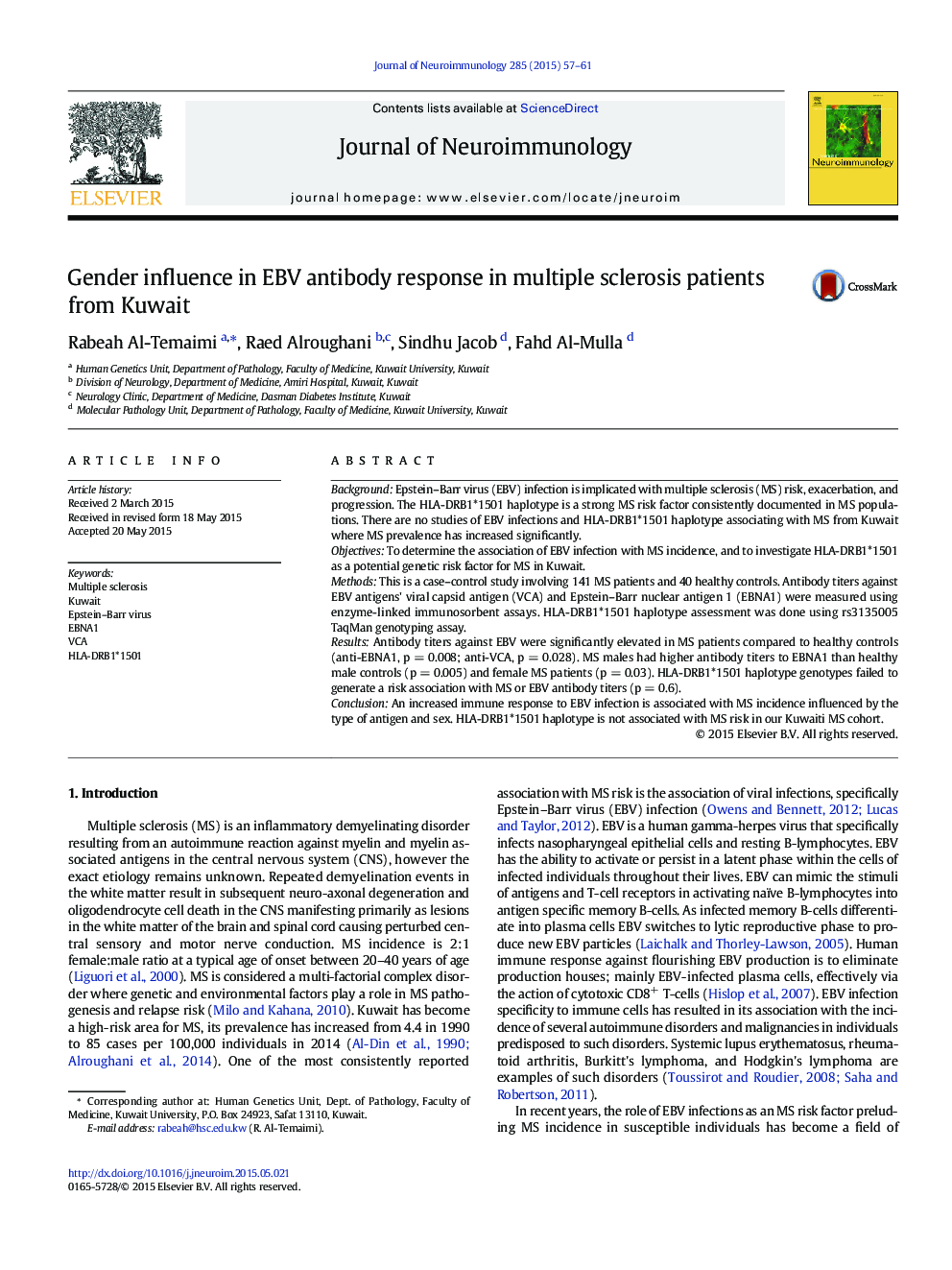| Article ID | Journal | Published Year | Pages | File Type |
|---|---|---|---|---|
| 6020190 | Journal of Neuroimmunology | 2015 | 5 Pages |
â¢MS males have a more progressive MS course than MS females in our study cohort.â¢EBV immunity in MS patients differs significantly from healthy controls.â¢Altered EBV immunity in MS patients is influenced by gender.â¢MS males have a stronger EBV immune response than healthy males.â¢HLA-DRB1*1501 haplotype does not associate with MS incidence in our MS cohort.
BackgroundEpstein-Barr virus (EBV) infection is implicated with multiple sclerosis (MS) risk, exacerbation, and progression. The HLA-DRB1*1501 haplotype is a strong MS risk factor consistently documented in MS populations. There are no studies of EBV infections and HLA-DRB1*1501 haplotype associating with MS from Kuwait where MS prevalence has increased significantly.ObjectivesTo determine the association of EBV infection with MS incidence, and to investigate HLA-DRB1*1501 as a potential genetic risk factor for MS in Kuwait.MethodsThis is a case-control study involving 141 MS patients and 40 healthy controls. Antibody titers against EBV antigens' viral capsid antigen (VCA) and Epstein-Barr nuclear antigen 1 (EBNA1) were measured using enzyme-linked immunosorbent assays. HLA-DRB1*1501 haplotype assessment was done using rs3135005 TaqMan genotyping assay.ResultsAntibody titers against EBV were significantly elevated in MS patients compared to healthy controls (anti-EBNA1, p = 0.008; anti-VCA, p = 0.028). MS males had higher antibody titers to EBNA1 than healthy male controls (p = 0.005) and female MS patients (p = 0.03). HLA-DRB1*1501 haplotype genotypes failed to generate a risk association with MS or EBV antibody titers (p = 0.6).ConclusionAn increased immune response to EBV infection is associated with MS incidence influenced by the type of antigen and sex. HLA-DRB1*1501 haplotype is not associated with MS risk in our Kuwaiti MS cohort.
